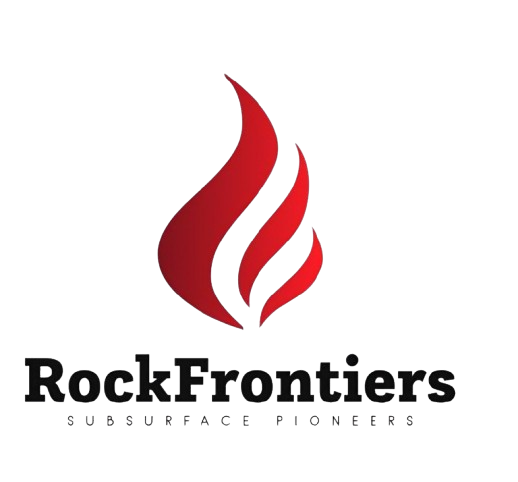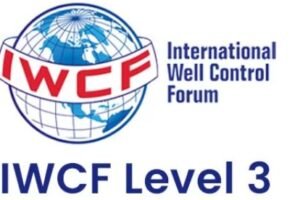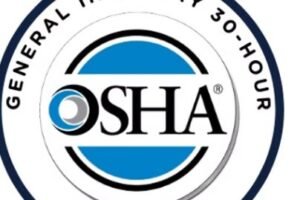🚀 Enhanced Oil Recovery (EOR): Chemical, Miscible & Thermal Techniques for Maximizing Recovery
🔎 Course Description This comprehensive course equips reservoir, production, and process engineers with in-depth knowledge of Enhanced Oil Recovery (EOR) methods, focusing on chemical, miscible gas, and thermal processes. Participants will learn how to screen reservoirs, design and implement EOR …
Overview
🔎 Course Description
This comprehensive course equips reservoir, production, and process engineers with in-depth knowledge of Enhanced Oil Recovery (EOR) methods, focusing on chemical, miscible gas, and thermal processes. Participants will learn how to screen reservoirs, design and implement EOR projects, evaluate performance, and optimize recovery strategies.
Through detailed technical content and practical examples, attendees will gain the expertise to evaluate and apply EOR options effectively in clastic and carbonate reservoirs.
✅ Learning Objectives
-
Understand the fundamentals and mechanisms of EOR processes
-
Differentiate between chemical, miscible, and thermal EOR methods
-
Screen reservoirs and select appropriate EOR techniques
-
Design and monitor EOR pilots and full-field projects
-
Evaluate economic and operational feasibility of EOR methods
-
Analyze real-world case studies to identify success factors and pitfalls
👥 Who Should Attend
-
Reservoir, petroleum, and production engineers
-
Geoscientists involved in reservoir characterization
-
EOR project managers
-
Field development planners
-
Oil company technical staff considering EOR implementation
-
Professionals in oil and gas regulatory and consultancy roles
🗂️ Training Format
✅ Expert-led lectures
✅ Interactive workshops
✅ Practical calculations and design exercises
✅ Case study analysis
✅ Group discussions and Q&A
📅 Detailed Daily Agenda with Time Breaks
📅 Day 1: Introduction to Enhanced Oil Recovery
| Time | Topic |
|---|---|
| 08:30 – 09:00 | Welcome, Course Objectives, Introductions |
| 09:00 – 10:30 | Overview of Primary, Secondary, and Tertiary Recovery |
| 10:30 – 10:45 | ☕ Coffee Break |
| 10:45 – 12:15 | EOR Screening Criteria & Reservoir Selection |
| 12:15 – 13:15 | 🍽 Lunch |
| 13:15 – 14:45 | Fundamentals of Fluid Flow & Displacement |
| 14:45 – 15:00 | ☕ Coffee Break |
| 15:00 – 16:30 | Recovery Mechanisms in EOR Processes |
📅 Day 2: Chemical EOR Methods
| Time | Topic |
|---|---|
| 08:30 – 10:00 | Polymer Flooding: Chemistry & Field Applications |
| 10:00 – 10:15 | ☕ Coffee Break |
| 10:15 – 12:15 | Surfactant and Alkali Flooding Mechanisms |
| 12:15 – 13:15 | 🍽 Lunch |
| 13:15 – 14:45 | Design of Chemical EOR Projects |
| 14:45 – 15:00 | ☕ Coffee Break |
| 15:00 – 16:30 | Case Studies of Successful Chemical EOR |
📅 Day 3: Miscible Gas EOR Methods
| Time | Topic |
|---|---|
| 08:30 – 10:00 | Fundamentals of Miscibility in Reservoirs |
| 10:00 – 10:15 | ☕ Coffee Break |
| 10:15 – 12:15 | CO₂ Injection and WAG Processes |
| 12:15 – 13:15 | 🍽 Lunch |
| 13:15 – 14:45 | Nitrogen and Hydrocarbon Gas Injection |
| 14:45 – 15:00 | ☕ Coffee Break |
| 15:00 – 16:30 | Screening and Economic Evaluation of Miscible EOR |
📅 Day 4: Thermal EOR Methods
| Time | Topic |
|---|---|
| 08:30 – 10:00 | Thermal Recovery Basics: Steam, Hot Water |
| 10:00 – 10:15 | ☕ Coffee Break |
| 10:15 – 12:15 | Cyclic Steam Stimulation & Steam Flooding |
| 12:15 – 13:15 | 🍽 Lunch |
| 13:15 – 14:45 | In-Situ Combustion: Design & Field Experience |
| 14:45 – 15:00 | ☕ Coffee Break |
| 15:00 – 16:30 | Environmental & Operational Challenges in Thermal EOR |
📅 Day 5: Project Design & Field Case Studies
| Time | Topic |
|---|---|
| 08:30 – 10:00 | Integrated EOR Project Planning & Pilot Design |
| 10:00 – 10:15 | ☕ Coffee Break |
| 10:15 – 12:15 | Monitoring and Evaluating EOR Performance |
| 12:15 – 13:15 | 🍽 Lunch |
| 13:15 – 14:45 | Economic Analysis & Risk Assessment for EOR |
| 14:45 – 15:00 | ☕ Coffee Break |
| 15:00 – 16:30 | Real Field Case Studies & Group Presentations |
📦 Materials Provided
✅ Comprehensive course manual
✅ EOR design calculation templates
✅ Reservoir screening charts
✅ Case study handouts
✅ Certificate of Completion
Target audiences
- Reservoir Engineers, Geologists
You May Like
📘 Underbalanced Drilling (UBD) Techniques and Safety
🎯 Course Description: This intensive 5-day program focuses on Underbalanced Drilling (UBD) – an advanced technique used to drill wells where the hydrostatic pressure of the fluid is intentionally kept below formation pressure. Participants will learn how to implement UBD …
📘 IOSH Managing Safely
🎯 Course Description: A practical, 5-day program designed to help managers and supervisors learn how to manage safety and environmental responsibilities in their teams. Emphasis is placed on identifying risks, measuring performance, and leading safely using internationally recognized good practices. …
📘 IWCF Level 3 Well Control (Surface BOP)
🎯 Course Description: This is an intensive course aimed at drilling / well service personnel needing to gain supervisory competence in well control using surface blow‑out preventers (BOP) under the IWCF standard. It covers theory, hands‑on practice, and assessments for …
Advanced Specialist Petroleum GeoMechanics
📘 Course Description: This elite-level course is tailored for petroleum geomechanics specialists and senior subsurface professionals engaged in complex field development projects. It provides a deep technical dive into stress modeling, anisotropic rock behavior, coupled geomechanical-reservoir simulation, fault/fracture mechanics, and …
📘 OSHA 30‑Hour General Industry Safety and Health
🎯 Course Description: This 5‑day course provides in‐depth knowledge of workplace safety and health in general industry sectors. It covers OSHA regulations, hazard recognition, safety programs, and industry best practices. Participants will gain the expertise needed to maintain a safe …






